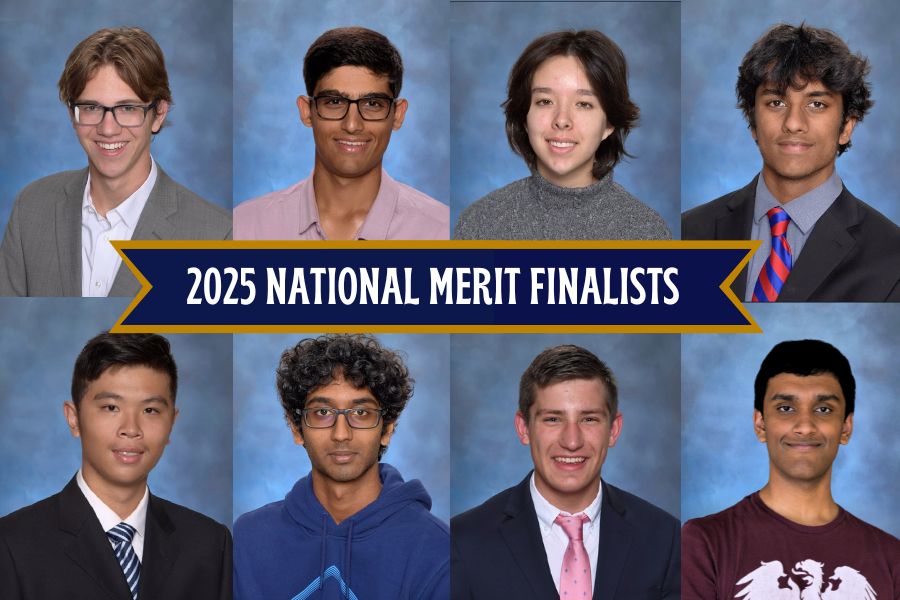Visitors to sites across the web on found themselves face-to-face with loading icon after loading icon, yet not waiting a second more than usual for the pages to load.
Sept. 10 stood as the date for Internet Slowdown Day, an online protest against proposed anti-Net Neutrality rules. Sites participating displayed messages as to why an end to Net Neutrality is dangerous, and featured the iconic “spinning wheel of death”: loading icons.
“Cable companies want to slow down (and break!) your favorite sites, for profit,” a representative on BattlefortheNet, the host site of the protest, said. “To fight back, let’s cover the web with symbolic “loading” icons, to remind everyone what an Internet without net neutrality would look like, and drive record numbers of emails and calls to lawmakers.”
Popular sites such as Tumblr, Vimeo, Netflix, Reddit, Wikia, Kickstarter and Foursquare all participated in the protest.
“They were telling me [government official’s] phone numbers and asking me to tell them not to pass something that would create a slow internet,” freshman Alex Herrera said.
The protest aimed to bring light to the ongoing debate over Net Neutrality; in recent years, internet service providers, or ISPs, have aimed to gain a tighter hold on the internet in hopes of selling access to certain sites to make a bigger profit. Supporters of Net Neutrality have compared the proposal to Cable TV: to get certain channels, watchers have to pay extra. This, applied to the internet, would mean that ISPs would hold the power to have internet users pay extra for access to everyday sites like Youtube, Facebook, or Hulu.
“Without an open internet, big corporations would have tight control over how we access websites and services,” a representative on theopeninter.net said.
Sites got the message out by pushing those who viewed the message to action.
“Stop internet slow lanes from ruining everything,” a banner across the top of popular blogging website Tumblr read along with multiple loading icons across the site. “Today’s the day. The day you help save the internet from being ruined.”
Other sites provided phone numbers that would connect those who called to US government officials; from there, they could state their comments on the debate with their local congressperson.
“Join us in supporting net neutrality by asking your congressperson to oppose the FCC’s proposal,” video-sharing site Vimeo’s homepage read the day of Sept. 10. “You’ll then be connected to one of your senators to tell him or her you want net neutrality.”
The sheer number of sites that participated on Internet Slowdown Day, nearly 10,000, had quite the impact. 304,993 calls in total were made. “Incredible work, everyone. These numbers are huge,” the Tumblr staff said in congratulations to their users in the day after the protest.
There are plenty of arguments against net neutrality, as well: it gives the government additional control over the internet, it brings up issues with internet users’ privacy, and it may not be the freedom activists are looking for.
But what about Parkway? “It is tough to predict how an end to net neutrality will impact Parkway,” Jason Rooks, Parkway’s Director of Technology and Innovation said. “Parkway has a large number of online services that are hosted both internally, like Infinite Campus and externally, like Edline.”
Rooks anticipates an end to net neutrality could lead to multiple negative impacts in the district.
“The costs associated with delivering those resources may go up,” Rooks said. “Or we may see decreased speed or access to some of online resources because our vendors do not want to pay higher fees for faster speeds.”
A loss of net neutrality could also impact how students use technology in the classroom. Students could no longer as easily use the internet as a resource for research.
“You will need to ask when researching a topic, are you getting all the information available or just the information that had enough funding to be delivered to you?” Rooks said. “If net neutrality came to end, I think it could negatively impact the diversity of information students have access to online.”
And debates over the internet are not due to stop any time soon; making decisions about such a vast network of sites and users is not at all simple.
“Bandwidth is a finite resource. Who controls this resource, who has access to it, and at what cost, are difficult questions to answer,” Rooks said.


![Smiling in a sea of Longhorns, Fox 2 reporter Ty Hawkins joins junior Darren Young during the morning Oct. 3 pep rally. The last time West was featured in this segment was 2011. “[I hope people see this and think] if you come to [Parkway] West, you will have the time of your life because there are so many fun activities to do that make it feel like you belong here. I was surprised so many people attended, but it was a lot of fun,” Young said.](https://pwestpathfinder.com/wp-content/uploads/2025/10/Edited2-1200x798.jpg)
![West High seniors and families listen as a representative of The Scholarship Foundation of St. Louis, Teresa Steinkamp, leads a Free Application for Federal Student Aid (FAFSA) workshop. This session, held in the library, provided guidance on financial aid, scholarships and student loan options. “This event is very beneficial for any seniors who are applying to or considering applying to colleges after high school [because] the cost of college is on the rise for seniors and parents,” college and career counselor Chris Lorenz said.](https://pwestpathfinder.com/wp-content/uploads/2025/09/DSC_4478-1200x778.jpg)
![Senior Kamori Berry walks across the field during halftime at the Homecoming football game on Sept. 12. During the pep assembly earlier that day, she was pronounced Homecoming Queen. “I thought it was nice that the crowd [started] cheering right away. I know [my friends] were really excited for me, and my family was happy because typically non-white people don't win,” Berry said.](https://pwestpathfinder.com/wp-content/uploads/2025/09/DSC7046-Enhanced-NR-1200x798.jpg)



![Pitching the ball on Apr. 14, senior Henry Wild and his team play against Belleville East. Wild was named scholar athlete of the year by St. Louis Post-Dispatch after maintaining a high cumulative GPA and staying involved with athletics for all of high school. “It’s an amazing honor. I feel very blessed to have the opportunity to represent my school [and] what [it] stands for,” Wild said.](https://pwestpathfinder.com/wp-content/uploads/2025/05/unnamed-6-1200x714.jpg)
![The Glory of Missouri award recipients stand with their certificates after finding out which virtue they were chosen to represent. When discovering their virtues, some recipients were met with contented confirmation, while others, complete surprise. “I was not at all surprised to get Truth. I discussed that with some of the other people who were getting the awards as well, and that came up as something I might get. Being in journalism, [Fellowship of Christian Athletes and] Speech and Debate, there's a culture of really caring about truth as a principle that I've tried to contribute to as well. I was very glad; [Truth] was a great one to get,” senior Will Gonsior said.](https://pwestpathfinder.com/wp-content/uploads/2025/04/Group-Glory-of-Missouri.jpg)


![Leaning on the podium, superintendent Melissa Schneider speaks to Parkway journalism students during a press conference. Schneider joined Parkway in July after working in the Thompson School District in Colorado. “My plan [to bond with students] is to get things on my calendar as much as possible. For example, being in [classes] is very special to me. I am trying to be opportunistic [meeting] kids [and] being in [the school] buildings. I have all the sports schedules and the fine arts schedules on my calendar, so that when I'm available, I can get to them,” Schneider said.](https://pwestpathfinder.com/wp-content/uploads/2025/09/IMG_5425-1200x943.jpeg)
![Gazing across the stage, sophomore Alexis Monteleone performs in the school theater. The Monteleone family’s band “Monte and the Machine” has been releasing music since 2012, but Alexis started her own solo career in 2024 with the release of her first single, Crying Skies. “My whole family is very musical, [and I especially] love writing [songs with them],” Monteleone said.](https://pwestpathfinder.com/wp-content/uploads/2025/09/DSC7463-1200x798.jpg)
![Leaping through the air, senior Tyler Watts celebrates his first goal of the season, which put the Longhorns up 1-0 against the Lafayette Lancers. Watts decided to play soccer for West for his last year of high school and secured a spot on the varsity roster. “[Playing soccer for West] is something I had always dreamed of, but hadn’t really had a good opportunity to do until now. It’s [really] fun being out [on the field], and I’m glad I decided to join the team. It’s just all about having fun with the boys and enjoying what time we have left together,” Watts said.](https://pwestpathfinder.com/wp-content/uploads/2025/09/DSC_1951-1200x855.jpg)

![Junior Fiona Dye lifts weights in Strength and Conditioning. Now that the Trump administration has instituted policies such as AI deregulation, tariffs and university funding freezes, women may have to work twice as hard to get half as far. "[Trump] wants America to be more divided; he wants to inspire hatred in people,” feminist club member and junior Clara Lazarini said.](https://pwestpathfinder.com/wp-content/uploads/2025/05/Flag.png)
![As the Trump administration cracks down on immigration, it scapegoats many immigrants for the United States’ plights, precipitating a possible genocide. Sophomore Annabella Whiteley moved from the United Kingdom when she was eight. “It’s pretty scary because I’m on a visa. When my visa expires next year, I’m not sure what’s going to happen, especially with [immigration] policies up in the air, so it is a concern for my family,” Whiteley said.](https://pwestpathfinder.com/wp-content/uploads/2025/05/DSC_0077-7copy.jpg)
![Shifting global trade, President Donald Trump’s tariffs are raising concerns about economic stability for the U.S. and other countries alike. “[The tariffs are] going to pose a distinct challenge to the U.S. economy and a challenge to the global economy on the whole because it's going to greatly upset who trades with who and where resources and products are going to come from,” social studies teacher Melvin Trotier said.](https://pwestpathfinder.com/wp-content/uploads/2025/05/MDB_3456-1200x800.jpg)
![Red, white and blue, the American flag holds the values of our democracy. The fight that we once endured has returned, as student journalists and senior correspondents across the country are losing their voices due to government control. “[Are] the White House and [the] government limiting free speech [and] freedom of the press? Yes [they are],” chief communications officer of the Parkway School District and former journalist Elisa Tomich said.](https://pwestpathfinder.com/wp-content/uploads/2025/03/Untitled-design-14.jpg)
![Freezing in their position, the Addams Family cast hits the “rigor mortis” pose after cast member and senior Jack Mullen, in character as Gomez Addams, calls out the stiff death move. For the past four months, the combined company of cast members, orchestra pit, crew and directors all worked to create the familial chemistry of the show. “I’m excited for [the audience] to see the numbers, the music, the scenes, but I also just love all the technical aspects of it. The whole spectacle, the costumes, makeup and the people that put in the work backstage in order to make the show successful on stage. I’m excited for people to see and appreciate that,” Mullen said.](https://pwestpathfinder.com/wp-content/uploads/2025/03/DSC0116-1200x800.jpg)
![A board in the Parkway West counseling department displays pennants of selective universities. With a wide range of students interested in attending, it’s important that these schools have clear priorities when deciding who to admit. “[Washington University] had the major that I wanted, psychology, philosophy, neuroscience. That's a holistic study of the brain, and [WashU is] the only college in the world that offers that. That's the main reason I wanted to go; I got into that program,” senior Dima Layth said.](https://pwestpathfinder.com/wp-content/uploads/2025/02/Flag-1.png)
